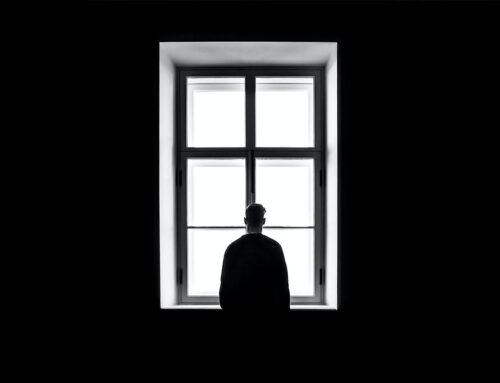We all need a restful night’s sleep to be at our personal best. Sleep is a vital part of keeping on top of your mental and physical health.
If you’re not regularly getting enough deep sleep, it’s likely that you’re feeling anxious and stressed. This is because when you’re tired, your body is in a state of fight-or-flight, which means your sympathetic nervous system is activated.
Insomnia can make life difficult in more ways than one. Not only does it sap your energy and make you feel exhausted, but it can also lead to other health problems including anxiety, depression, and even heart disease.
Many people with sleep disorders also experience mental health issues, so it’s important to seek out help if you feel your condition is unmanageable.
Hypnosis for insomnia is one of the most common ways of treating sleep disorders. Hypnotherapy is specifically geared toward helping you get a good night’s sleep. Although clinical sleep medicine is often prescribed and can be effective, there can be side effects.
Sleep hypnosis is a relatively new field, but it has shown promising results in helping people with insomnia get the rest they need. A study published in the Journal of Clinical Psychology found that 70% of people who underwent sleep hypnosis reported improvements in their sleep quality.
In this article, we’ll explore common sleep problems and discover how hypnotherapy can help, along with a few tips on how to help you fall asleep naturally.
What is Insomnia?
Insomnia is a sleeping problem and one of the most common sleep disorders. It can be short-term (acute) or long-term (chronic). It’s characterised by difficulty falling asleep, or staying asleep for long enough to feel rested.
Most people have experienced insomnia at some point in their lives. The night before a test or an important event is enough for the mind to go into overdrive and make it difficult to sleep. At other times falling asleep isn’t the problem, but instead continually waking throughout the night. That lack of restful sleep can be frustrating and debilitating when you’re not getting the right amount of sleep you need to function properly.
Insomnia can lead to feelings of anxiety and stress, and can impact your overall quality of life.
Types of Insomnia
There are two types of insomnia recognised by health professionals, these are:
Short-Term Insomnia
Sometimes referred to as acute insomnia or adjustment insomnia. Usually, this is only a short-lived problem, brought on by stress or a change in environment. Once the stressful event has passed, or you’ve adjusted to the new situation, your sleeping patterns should go back to normal. If time passes and you’re still experiencing sleep disturbance and chronic fatigue after three months this could be the onset of chronic insomnia.
Chronic Insomnia
This is when insomnia lasts for longer periods of time, usually for at least three nights a week for more than three months. Some people experience sustained periods of sleep disturbances for years. It can be caused by many different things, including physical and mental health problems such as post-traumatic stress disorder, poor sleep hygiene, shift work, jet lag, and medications.
Symptoms of Insomnia
There are a number of different symptoms of insomnia, which can vary from person to person and depend on underlying health conditions. The most common symptoms include:
- Difficulty falling asleep
- Waking up frequently during the night
- Waking up early in the morning
- Feeling tired during the day
- Difficulty concentrating
- Iirritability
Treatment for Insomnia
If you’re experiencing sleep disturbances then the first thing you should do is speak to your GP. Some sleep problems are caused by physical factors, such as menopause or sleep apnoea, and will require treatment specific to those conditions.
The most common treatment for insomnia is sleep medication, which can be effective in the short term. However, these medications can come with a range of side effects, including dependency and tolerance. In some cases, they may even make your insomnia worse.
Your GP may also refer you to a sleep specialist for further assessment. A sleep specialist can help identify any underlying causes of your insomnia and provide treatments to induce sleep.
Cognitive Behavioural Therapy
Cognitive behavioural therapy (CBT) is another popular treatment option for insomnia. This type of therapy can help to change the way you think about sleep and break any negative associations you have with going to bed. It can also teach you helpful techniques for relaxation and managing stress.
Hypnotherapy for Insomnia
Hypnosis for sleep is often cited as an excellent way to treat sleep issues. Hypnotherapy is well documented as being helpful for tackling mental health conditions such as anxiety and depression. If you have a sleep disorder that is caused by anxiety or stress, then hypnosis could be an effective treatment.
During sleep hypnosis, a therapist will guide you into a state of relaxation and focus your attention on positive suggestions for sleep. These suggestions can help to change the way you think about sleep and promote healthy sleeping habits.
A course of sleep hypnosis usually involves around four to six sessions. These can be done either in person or online. Some people find that they only need a single session to see improvement, while others may require multiple sessions to achieve the desired effect.
What is Sleep Hypnosis
Sleep hypnosis is a technique that is used to induce relaxation and sleep. It can be used to treat insomnia, anxiety, stress and other conditions. People who practice hypnosis report improved sleep quality and duration. Clinical hypnosis for sleep disorders is usually conducted by a trained therapist in a one-to-one setting.
How does sleep hypnosis work?
During sleep hypnosis, a therapist will guide you into a state of relaxation and focus your attention on positive suggestions for sleep. These suggestions can help to change the way you think about sleep and promote healthy sleeping habits.
What to Expect
There are three stages of in the process of treating sleeping disorders using hypnosis, they are:
Initial Conversation
Your first session will be an initial consultation. This is where you and the hypnotherapist will discuss your goals and what you hope to achieve from hypnosis.
Your hypnotherapist will then ask you about your sleeping problems and how they’re affecting you. They’ll also ask you about your past experiences and any positive resources you have that could help you achieve your goals.
Discussion
Once your therapist has a good understanding of your problem, they’ll begin to work with you (using a collaborative process called co-creation) to develop a plan of action. This will involve setting realistic goals and identifying any obstacles that might be preventing you from achieving restorative sleep.
As well as discussing any positive changes you’ll want to make, the hypnotherapist will discuss the physiology of the brain and how the brain works, giving you a better understanding of what is preventing you to fall asleep and how hypnosis will help.
Hypnosis
Hypnosis is a natural state of being, you’ve probably experienced a trance-like state many times in your life. An example of this relaxed state of being could be when you’re driving and suddenly realise you can’t remember the last few miles, or when you’re absorbed in a book and the outside world fades away – this is a form of self-hypnosis.
During hypnosis will feel relaxed and enter into a state of focused attention, this is achieved through physical relaxation techniques (such as progressive muscle relaxation), guided imagery and hypnotic suggestions. Once you’re in this trance state, the subconscious mind is more open to change. The hypnotherapist will then give a series of suggestions and new ideas to help bring about positive change. You will feel extremely relaxed and calm and aware of everything around you. Many clients find this deeply relaxed state a very pleasant and enjoyable experience.
It’s worth noting that hypnotherapy is very safe, you cannot get stuck in a trance and you are in complete control at all times.
As a brief therapy, in just a few sessions you should start to notice some positive changes, you’ll sleep deeper and enjoy better sleep overall. Some clients feel the benefits after just one session.
If you’re thinking about trying hypnosis for insomnia it’s important to find a qualified and experienced clinical hypnotherapist.
Does Sleep Hypnosis Work?
Achieving healthy sleep is well documented, and organisations such as the Sleep Foundation regularly publish scientific articles relating to the research into overcoming sleeping problems.
A prominent study in the Journal of Clinical Sleep Medicine found that half (58.3%) of the studies relating to sleep hypnosis had positive results. It’s worth noting that the sleep issue may not be the root cause of the problem and that resolving medical conditions such as anxiety or depression with hypnosis will have positive sleep outcomes.
Tips for Good Sleep Hygiene
Healthy sleep habits can make a big difference. You can achieve better sleep by following these tips:
- Get on a regular sleep schedule. Go to bed and get up at the same time every day, even on weekends. This helps train your body to sleep better.
- Create a bedtime routine. Do relaxation exercises, read or take a bath to help you prepare for rest.
- Create a sleep-friendly environment. Make sure your bedroom is dark, quiet and cool. Remove electronic screens such as TVs, laptops and phones from your bedroom.
- Exercise regularly but not close to bedtime. Exercise can help you sleep better, but avoid exercising within a few hours of bedtime.
- Avoid caffeine and alcohol before bedtime. Caffeine can keep you awake, and alcohol can disrupt your sleep.
- Avoid smoking before bedtime. Nicotine is a stimulant and can keep you awake.
- Wind down before bedtime. Give yourself time to relax before going to bed.
- If you have trouble sleeping, avoid napping during the day. Napping can make it harder to sleep at night.
As well as the above tips, many people have suggested that Cognitive Behaviour Therapy (CBT) works well in conjunction with sleep hypnosis.
Self-Hypnosis for Sleep
There are a number of self hypnosis techniques that can help you fall asleep naturally without treatment options such as hypnosis, therapy or taking sleep medicine. The Sleep Foundation states that self sleep hypnotherapy won’t put you to sleep but instead helps reduce negative thoughts about it. There are four stages that occur during a self hypnosis session. these are as follows:
Get comfortable
Find yourself a comfortable place where you’d like to fall asleep
Relax
Focus on your breath, then use progressive muscle relaxation to reduce stress. Focus and hold a moment on each part of your body, from head to feet. Allow yourself to fall into a deep state of relaxation.
Introduce post-hypnotic suggestions
Start to think of simple statements that you’d like to do differently, such as “I always fall asleep easily”, “I wake up feeling refreshed”. Choose statements that work for you and repeat them to yourself.
Allow yourself to drift off
Start to count down from 10. As you do, focus your attention on how sleepy you’re becoming. By the time you get to 1, you should be asleep.











